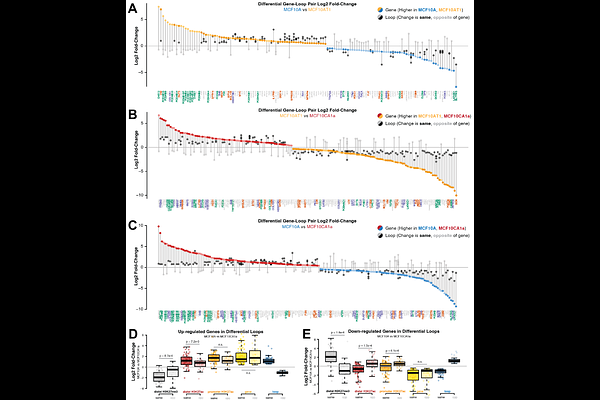Genome reorganization and its functional impact during breast cancer progression

Genome reorganization and its functional impact during breast cancer progression
Reed, K. S. M.; Fritz, A.; Greenyer, H.; Heselmeyer-Haddad, K.; Frietze, S.; Stein, J.; Stein, G.; Misteli, T.
AbstractBackground: Cancer cells undergo widespread changes in epigenetic patterns that mediate cancer compromised gene expression programs during cancer progression. However, the alterations in higher-order genome organization in which these changes occur and their functional implications are less well understood. To explore how chromatin structure and epigenetic parameters of genome architecture changes during cancer progression at a fine scale and genome-wide, we generated high-resolution Micro-C contact maps in non-malignant, pre-cancerous, and metastatic MCF10 breast cancer epithelial cells. Results: We profiled progression-associated reorganization of chromatin compartments, topologically associated domains (TADs), and chromatin loops, and also identified invariable chromatin features. We find large-scale compartmental shifts occur predominantly in early stages of cancer development, with more fine-scale structural changes in TADs and looping accumulating during the later transition to metastasis. We related these structural features to changes in gene expression, histone marks, and potential enhancers and found a large portion of differentially expressed genes physically connected to distal regulatory elements. While changes in chromatin loops were relatively rare during progression, differential loops were enriched for progression-associated genes, including those involved in proliferation, angiogenesis, and differentiation. Changes in either enhancer-promoter contacts or distal enhancer activity were accompanied by differential gene regulation, suggesting that changes in chromatin contacts are not necessary but can be sufficient for gene regulation. Conclusions: Together, our results demonstrate a functionally relevant connection between gene regulation and genome remodeling at many key genes during cancer progression.